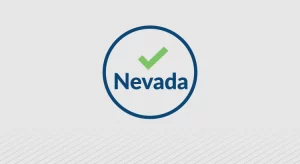
PIPEDA Compliance
What Is PIPEDA?
The personal Information Protection and Electronic Documents Act (PIPEDA) serves as the foundation of privacy regulations in Canada, setting the standards for how private sector organizations must deal with personal data.
PIPEDA mandates organizations to openly declare their data collection, utilization, and distribution procedures, providing maximum visibility to individuals. This law also mandates organizations to secure the consent of an individual before gathering, applying, or sharing their personal information.
Customers must be informed of all purposes for which information is collected and used. If the customer asks for any corrections or deletions, the company must make the necessary changes without delay. They also must understand what they are being asked to consent to. For consent to be considered valid, organizations must provide information about their privacy rules and regulations in an understandable way.
PIPEDA generally applies to the following services provided by the government:
- Employment insurance
- Retirement benefits
- Public safety and federal policy
- Tax collection and refunds
- Border security
Who Must Comply with PIPEDA?
PIPEDA is the federal privacy law in Canada that governs private sector organizations collecting, using, or disclosing personal information during their commercial activities. It applies not only to organizations within Canada but also to organizations outside of the country if they handle the personal data of individuals residing in Canada. Despite the existence of provincial privacy laws for public sector organizations, PIPEDA remains the go-to privacy law for the private sector in these regions. Furthermore, organizations handling sensitive personal information, such as health records, may be subject to even stricter PIPEDA requirements.
PIPEDA and GDPR (General Data Protection Regulation)
PIPEDA and GDPR share the objective of safeguarding personal information and upholding the privacy rights of individuals, but they differ in several aspects:
- Geographical coverage. While PIPEDA governs private sector organizations in Canada, GDPR extends to all organizations operating within the European Union, regardless of the location of data processing.
- Erasure rights. Individuals have the right to have their personal data erased under GDPR, also referred to as the “right to be forgotten”, which is not granted under PIPEDA.
- Data protection officer appointment. GDPR obligates organizations to appoint a data protection officer in certain cases, while PIPEDA does not have this obligation.
- Penalties for non-compliance. Both PIPEDA and GDPR enforce serious penalties for non-compliance, but GDPR’s penalties can be more severe, reaching up to 4% of a company’s global annual revenue or 20 million euros, whichever is higher.
The Importance of Adhering to PIPEDA
Adhering to PIPEDA is crucial in preserving the privacy rights of individuals and establishing confidence in organizations. Compliance with PIPEDA demonstrates an organization’s commitment to responsible data management and privacy protection, potentially enhancing its reputation and customer loyalty.
The PIPEDA Checklist
This checklist can help organizations ensure that personal information is handled securely and complies with the requirements set forth by PIPEDA.
In complying with PIPEDA, organizations must:
- Obtain consent from individuals to collect, use or disclose their personal information.
- Gather only personal and business-critical information, while clearly explaining the reason for its need.
- Use and disclose personal information only for the purpose for which it was collected, unless additional consent was obtained.
- Check the correctness of personal information and make any required changes timely.
- Apply security policies to protect personal information from unauthorized access and use.
- Retain personal information only as long as it is necessary for the purposes for which it was collected. They must dispose of it securely when it is no longer needed.
- Remember that Individuals have the right to access and request correction of their personal information, and organizations must provide access within a reasonable timeframe.
Reputational damage, loss of customer trust, and financial penalties are some of the consequences organizations that fail to comply with the above measures may face.
DataSunrise Solutions for PIPEDA Compliance
Organizations should have clear procedures to ensure that personal information is handled responsibly. DataSunrise helps you control, automate and administrate the PIPEDA Regulation with the Database Regulatory Compliance tool.
DataSunrise offers comprehensive data protection in SQL and NoSQL databases with analysis of compliance, configuration, and application security policies. DataSunrise has a variety of security rules and policies including dynamic data masking, activity monitoring, blocking unauthorized access, and preventing SQL injections. We offer a range of audits and data security solutions to help you meet different obligations, from data auditing to data security in the cloud or on-premises.
DataSunrise ensures you are compliant with a number of regulations such as SOX, HIPAA, GDPR, and others. Implementing DataSunrise software allows you to concentrate on your business and save time and budget.
